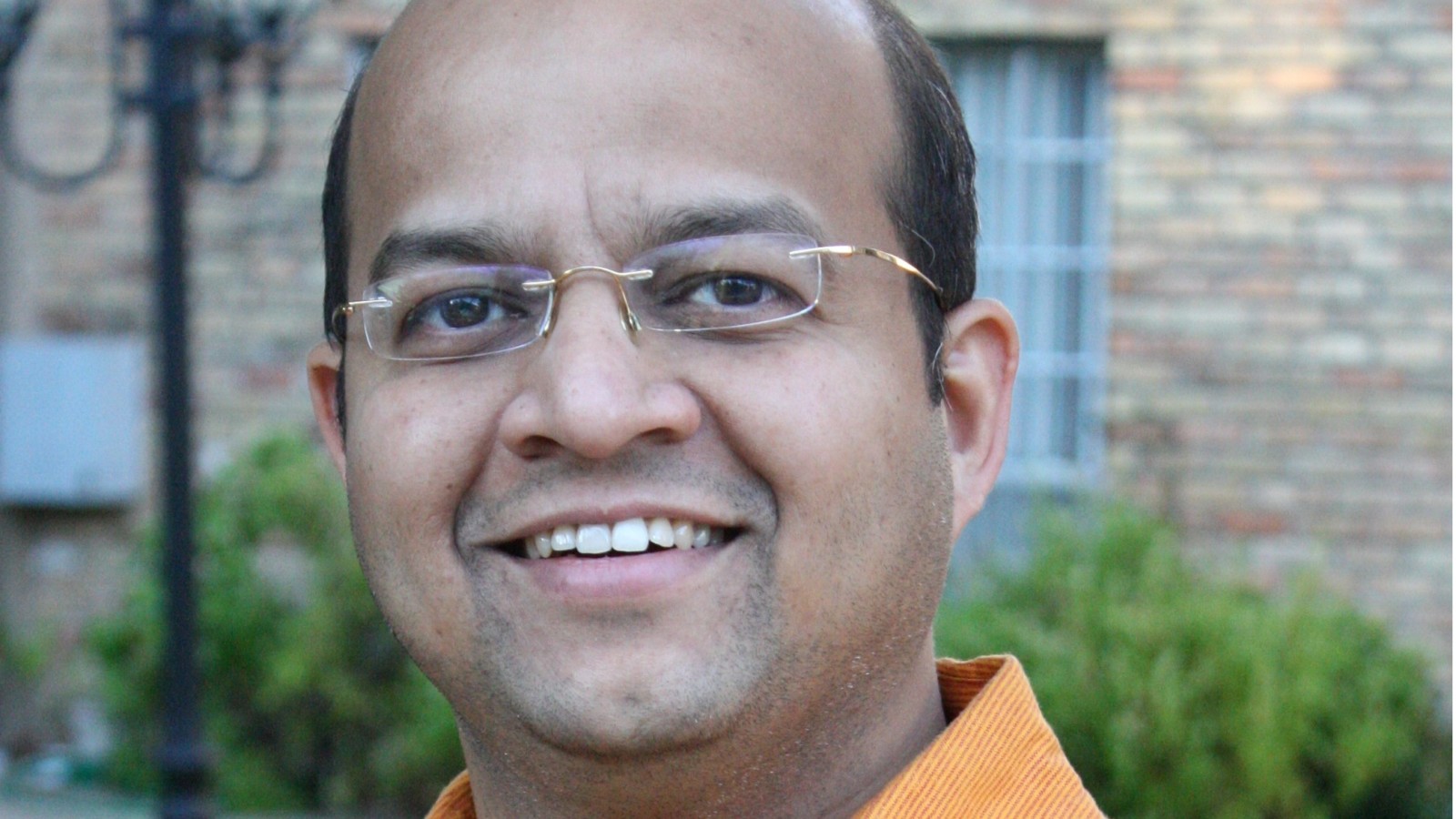True leaders will seek to find what motivates people and do whatever they can to unleash their passion.
As part of our series about 5 Steps That Each Of Us Can Take To Proactively Help Heal Our Country, I had the pleasure of interviewing Mandar Apte.
Mandar Apte, executive director, Cities4Peace and former manager of Shell’s Gamechanger Social Innovation Program, Mandar is a thought leader on leadership, entrepreneurship and social innovation. He has spoken on these topics at prestigious forums such as TEDx, Wharton Business School, Social Innovation Summit, and London Business School, among others. Mandar is also an Ashoka League of Intrapreneurs Award recipient, recognized for designing and delivering his innovative teaching program to over 2000 Shell colleagues.
In 2019, Mandar co-founded the Cities4Peace initiative — a unique consultancy, serving civic leaders across various communities. Through this work, Mandar has been able to enact change at a local level by teaching mindful leadership techniques, while promoting compassion and nonviolence throughout cities and communities worldwide. The flagship project of this initiative was recently completed in partnership with the Los Angeles Police Dept (LAPD) and the LA Mayor’s Office for Gang Reduction & Youth Development (GRYD).
For nearly two decades, Mandar has worked as a Senior Faculty Member of Leadership programs offered by The International Association for Human Values — a 501(c)3 nonprofit organization. Mandar has taught vital mindfulness techniques and meditation practices to thousands of people, including police officers, victims of violence, returning veterans, inner-city youth and educators.
In 2018, Mandar hosted the inaugural, World Summit for Countering Violent Extremism. Purposely coinciding with the 149th birthday of Mahatma Gandhi’s, this event connected more than 120 change-makers from across the world to discuss solutions that promote peace and nonviolence. Until recently, Mandar acted as a Visiting Scholar at George Mason Univ. School for Conflict Analysis & Resolution.
Thank you so much for doing this with us! Before we dig in, our readers would like to get to know you. Can you tell us a bit about how you grew up?
I grew up in a middle class family in Mumbai, India. My parents worked hard to ensure that we got the best education. I loved playing team sports and reading books. I remember reading the Hardy Boys in particular and fell in love with the mission of solving mysteries and adventure.
Is there a particular book that made a significant impact on you? Can you share a story or explain why it resonated with you so much?
When I went to the U.S. for my graduate studies, many international students would ask me about Mahatma Gandhi. It was embarrassing because I didn’t know what to say. So the first book that I read in the U.S. was Mahatma Gandhi’s autobiography. That book was inspirational. I learned that Gandhi was a very simple man, and always experimented with his life by applying things that he was learning, just like a scientist would! The book inspired me to commit myself to the teachings of nonviolence (or Ahimsa). As a result, I also found the courage to lead interfaith dinner meetings on campus and bring students from across the world together in the spirit of exchanging our life stories while sharing a meal.
Do you have a favorite “Life Lesson Quote”? Do you have a story about how that was relevant in your life or your work?
In 2015, I was going through a very tough phase at my work. My meditation teacher, Sri Sri Ravi Shankar, told me to ponder on the three important skills required for a change-maker:
1) Passion to make a difference — having a mission and purpose in life
2) Dispassion so we can have a good night’s sleep amidst the challenges we will face; and
3) Compassion to accept people and situations as they are and not let them affect us.
This guidance has helped me to navigate the chaos of life with grace, ever since.
How do you define “Leadership”? Can you explain what you mean or give an example?
Leadership is both an art and science. Good leadership requires a multifaceted approach of rationality, intuition and empathy. It involves an ability to guide ourselves, people, and situations with grace, compassion and dignity. It requires a deep sense of compassion to support everyone to be their best.
Outside of my day job, I used to volunteer my time teaching meditation practices to returning veterans from Iraq, Afghanistan and Vietnam. My boss invited me to teach meditation at Shell as part of my day job. He allowed me to bring my passion to work. I was more productive and never again hid my passion.
True leaders will seek to find what motivates people and do whatever they can to unleash their passion.
In life we come across many people, some who inspire us, some who change us and some who make us better people. Is there a person or people who have helped you get to where you are today? Can you share a story?
Obviously my parents are my first inspiration. They raised us, with love, compassion and human values. I am indebted to them and the sacrifices that they have made for giving us the best. In addition, I am grateful for the time that I have spent with my meditation teacher and world humanitarian leader, Sri Sri Ravi Shankar. His teachings have helped me to overcome stress in both personal and professional life. He has also showed me by example that we need to promote human values education that brings people together in the spirit of mutual respect, service and compassion. With his inspiration, I have recently taught meditation practices to former gang members in Los Angeles and empower them as Ambassadors of Nonviolence.
Ok, thank you for all that. Now let’s move to the main focus of our interview. The United States is currently facing a series of unprecedented crises. So many of us see the news and ask how we can help. We’d love to talk about the steps that each of us can take to help heal our county, in our own way. Which particular crisis would you like to discuss with us today? Why does that resonate with you so much?
The recent murder of George Floyd led to a huge uprising across the U.S. against systemic racism. The tension between communities of color and law enforcement is of great concern to me. The issue is further politicized by U.S. media and politicians. I feel drawn to be part of the solution for this issue and design solutions to promote peace and nonviolence. We need to build bridges that enable greater trust and allow for common sense reforms.
Can you tell our readers a bit about your experience either working on this cause or your experience being impacted by it? Can you share a story with us?
Together with some like-minded friends, we started a peace consultancy that works with civic leaders to design solutions that actively promote peace and nonviolence in their communities and neighborhoods. We were invited by the Deputy Chief of Police, Los Angeles Police Department (LAPD) to reduce violence and improve community police relations.
In less than six months, we taught our programs on trauma relief to more than 500 members of the community. In addition, we have certified nearly 50 community members, including victims of violence and former gang members, as Ambassadors of Nonviolence. They are now actively teaching nonviolence workshops in their community.
Ok. Here is the main question of our discussion. Can you please share your “5 Steps That Each Of Us Can Take To Proactively Help Heal Our Country”. Kindly share a story or example for each.
The five steps that each one of us can take are explained by one word — PAUSE.
- Pause — Often we are so busy in serving others that we fail to serve ourselves. We need to take time out for our own self care and find ways to manage our feelings and emotions. Having a stress free mind, will allow us to improve our perception, observation and expression. We can then be of greater service to our families, communities and organizations.
- Acknowledge — Consider the opposite point of view. We don’t need to agree with that view point, however we need to learn to listen with compassion and acknowledge that there is an underlying reason and assumption behind having that point of view just like we have a reason (and assumptions) to have our point of view. We need to develop our capacity to learn “how to agree to disagree.”
- Understand — Develop a sense of understanding that there is pain in everyone’s life, whether you are a nurse, a police officer, a teacher, a young person. We all have some pain in our life. That’s just how it is. However, suffering can be optional. So how can we promote healing at the level of the individual and community?
- Service — I always wonder why we wait for an act of violence to show our compassion? Can we actively promote compassion and peace education in our spheres of influence in our schools, communities and organizations?
- Elevate — Racism and social injustice will always prevail until we see “the other.” Leaders will need to elevate their game and develop a heightened sense of empathy and compassion that allows us to feel the pain of others and design solutions to reduce the suffering.
It’s very nice to suggest ideas, but what can we do to make these ideas a reality? What specific steps can you suggest to make these ideas actually happen? Are there things that the community can do to help you promote these ideas?
1. Reboot yourself: Please look into natural and healthy ways to boost our immunity. I have benefited tremendously from a three session workshop on breath and meditation practice offered by the non-profit Art of Living Foundation across the world. Check it out for your own self care needs: www.artofliving.org
2. Rejuvenate yourself: Make a new friend every day. There are so many people doing good work in the world. Reach out with kindred spirits from different parts of the world and find alignment with them — at the least they will inspire you to continue your mission. At best you can find synergies and do something together. Keep building your network, even before you need it.
3. Attend our online workshop: Build capacity for promoting peace in our cities and neighborhoods and becoming an effective changemaker.
Participate in our online course that is designed to build the capacity of change makers to promote peace in their cities and neighborhoods. Share this with members of your community and wherever you have influence.
We are going through a rough period now. Are you optimistic that this issue can eventually be resolved? Can you explain?
Indeed these are turbulent times. Multiple vectors have hit our society including the COVID-19 pandemic, systemic racism, climate change etc. However, I believe that as human beings, we all have the power to choose the possibility of hope, love, action and progress. Across every age, race, religion and region, we are united by common human values and aspirations that are much greater than our differences. We just need to raise our consciousness and become stronger agents of change to promote peace and human values education. It can be done!
How can our readers follow you online?
You can follow me on Twitter: @mandarapte108


